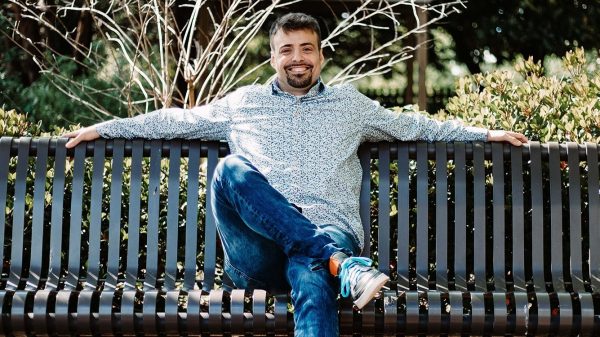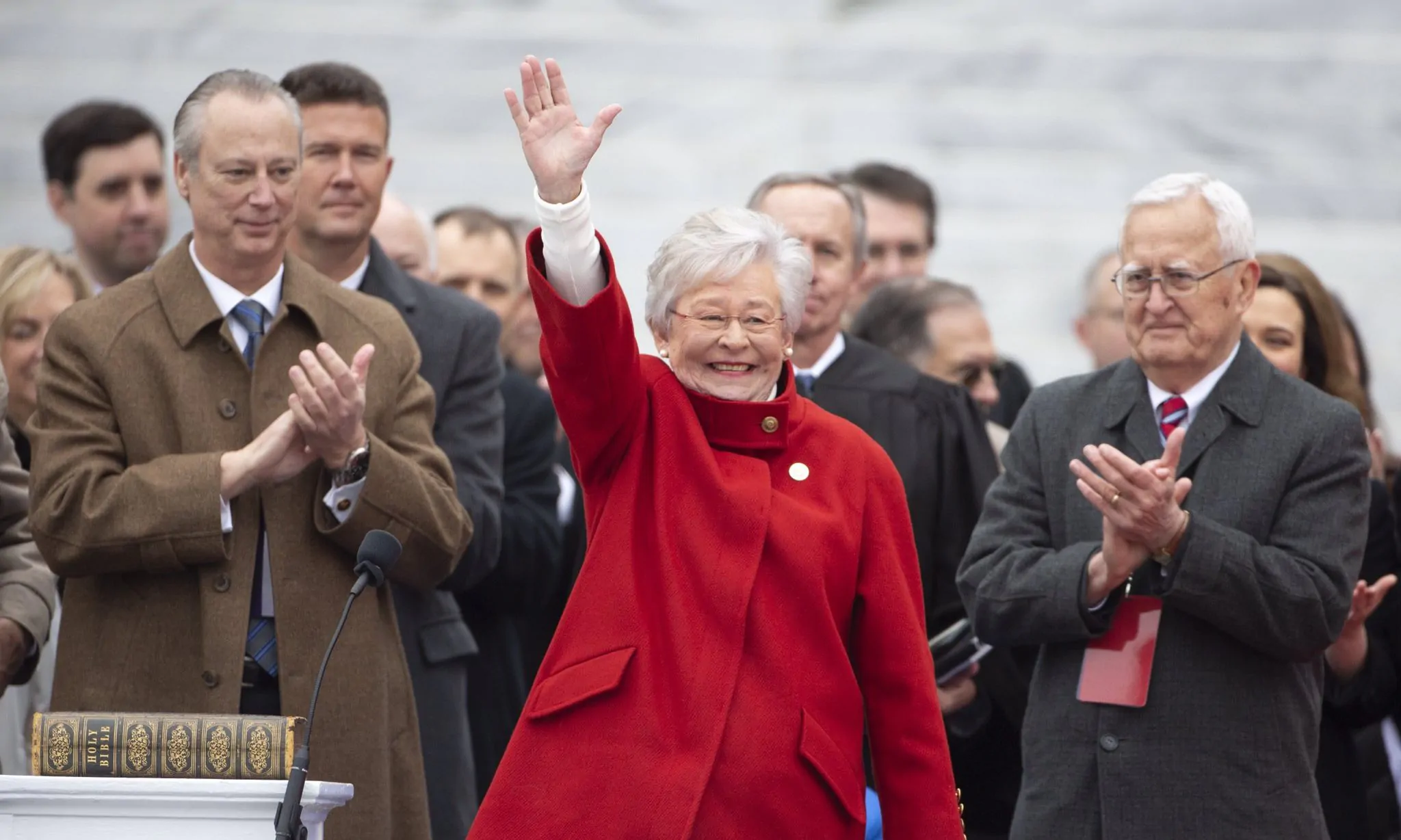Among the 2,766 words in Gov. Kay Ivey’s inaugural speech, she addressed a few major themes and some gems and clues on critical issues that she wants to tackle over the next four years.
Roads and bridges were front and center in Ivey’s remarks, as were prisons, but within the text she emphasized other priorities, as well. Among those she mentions is the Port of Mobile, the 2020 Census, health care, rural economic development and statewide access to high-speed internet broadband.
“It can be easy to focus only on the issues that need the most immediate attention – such as education, roads, and prisons,” said Ivey toward the end of her speech. “[B]ut in reality, as we dig in and begin to address these issues, I hope the progress that we make will inspire us to tackle other pressing challenges, such as health care, rural economic development, access to broadband and other important issues.”
Port of Mobile
Ivey is fully committed to a fuel tax to upgrade the state’s infrastructure. She mentions roads and bridges several times during her address, adding ports to the mix in one key sentence. “After all, if we want to compete in a 21st-century global economy, we must improve our infrastructure by investing more in our roads, our bridges, and our ports.”
Alabama’s entire congressional delegation led by U.S. Senator Richard Shelby has endorsed modernization of the Mobile Harbor Federal Navigation Channel. Port modernization is one of the most significant proposed economic development projects in state history.
“The deepening and widening of the Port of Mobile will provide economic development opportunities throughout the entire state of Alabama,” said Sen. Shelby. “This project will create an avenue for exponential growth by facilitating and expanding commerce in the state. I look forward to continuing our work with the Corps as we strive to improve the safety and efficiency of the Port in an increasingly global marketplace.”
Alabama delegation supports Port of Mobile navigation improvements
Gov. Ivey, like Senator Shelby, understands that modernizing the Port of Mobile would fund significant infrastructure projects.
2020 U.S. Census
Also during her address, Gov. Ivey made a point of stressing the 2020 U.S. Census, which could not only cost the state a congressional seat but much needed federal funding that underpins the state government operations.
“And speaking of our Congressional Delegation, my Administration has already been hard at work with local and state leaders in all 67 counties to begin the tedious — but all-important task of making sure we get an accurate headcount for the upcoming Census,” said Ivey.
As APR’s Brandon Moseley reported, “A recent study by George Washington University indicates that the U.S. government returned more than $1,567 to the state in 2015 for every Alabamian counted in the census. More than 100 federal programs use data collected during census counts as part of their formulas to distribute billions of dollars in federal funding to the states. Those programs include Medicaid, Medicare Part B, Supplemental Nutrition Assistance Program, Highway Planning and Construction, and Title 1 Grants to Local Education Agencies. Census-derived data also is used to allocate seats in the U.S. House of Representatives and in legislative redistricting.”
Ivey establishes statewide group to prepare Alabama for maximum Census participation
Health Care
Alabama Republican politicians have ignored the question of Medicaid expansion or rejected it outright, but there are recent signs that resistance is softening.
“Despite what appears to be a solid opposition among Alabama Republicans, some public health experts and hospital officials, including the Alabama Hospital Association, are issuing dire calls for a renewed debate,” reported APR’s Chip Brownlee.
“Medicaid expansion is the one thing the state can do to prevent more hospital closures, loss of jobs, and cutbacks on services,” said Danne Howard, the association’s chief policy officer.
“The association — and the more than 100 individual hospitals it represents across Alabama, many of them rural and some of them teetering on the edge of closing — view the situation as so dire that the association plans to launch a renewed effort early next year to bring the discussion back to the forefront ahead of the 2019 legislative session, when a new class of state lawmakers will take office,” according to Brownlee.
While Ivey only mentions health care in one passage, it is no doubt on her mind.
Should Medicaid expansion be on the 2019 legislative agenda? Experts say it has to be
Broadband Access
In Aug. 2018, Ivey joined Congressman Robert Aderholt, R-Haleyville, and others to promote the benefits of rural broadband and announce that Aderholt has secured $600 million for USDA to increase access to broadband in rural America.
“High-speed, high-quality connectivity is essential to modern day life. It’s a necessary component to education, commerce & quality healthcare,” Ivey said.
Aderholt said that “Securing $600 million for rural broadband wasn’t the end of our mission, but just the beginning. Today, Anne Hazlett- Assistant Secretary for Rural Development at the U.S. Department of Agriculture and I talked about the next steps to bring broadband to all of Alabama.”
Rural Economic Development
PowerSouth President and CEO Gary Smith wrote about the need for rural economic development in September of last year. After enumerating the successful economic opportunities in other parts of the state, he asked, “But what about the rest of Alabama? What about Selma, Eutaw, Greensboro, Andalusia, Greenville, and so many other communities? Those communities have succeeded in the past with textiles, agriculture, military, and lighter industries. However, many of them have fallen on hard times. What will rural Alabama look like in 20 years?”
Smith highlighted three areas that need improvement so that rural communities can be competitive.
“It is clear that good-paying jobs locate in areas with better education, medical care, and communications services,” he wrote.
The Alabama House Rural Caucus is ready to use its energy to gain support for rural cities and counties and can be a great asset to Gov. Ivey. Rural Caucus Chair David Standridge, R-Hayden, recently said, “A vast majority of Alabamians live in rural areas, and it is vital that their voices be heard in the Legislature and throughout all of state government. From rural healthcare to broadband internet access, to improving our roads and bridges, there are serious issues that must be addressed to improve the quality of life of those who live away from major urban centers. I, along with my colleagues, remain committed to protecting rural Alabama.”
Alabama House Rural Caucus re-elects David Standridge as chairman
Toward the end of her speech, Ivey made a plea to all Alabamians to join her in a quest to make the state even better.
“The campaign season and elections are long since behind us. Today, all Alabamians – regardless of party affiliation – have the chance to stand together, united, to help build a brighter future and guarantee that our best days are still in front of us.
And we need everyone to help… teachers, farmers, job creators, health care professionals, law enforcement and the media.”
Ivey’s inaugural address leaves tempting clues on her full agenda.

















































